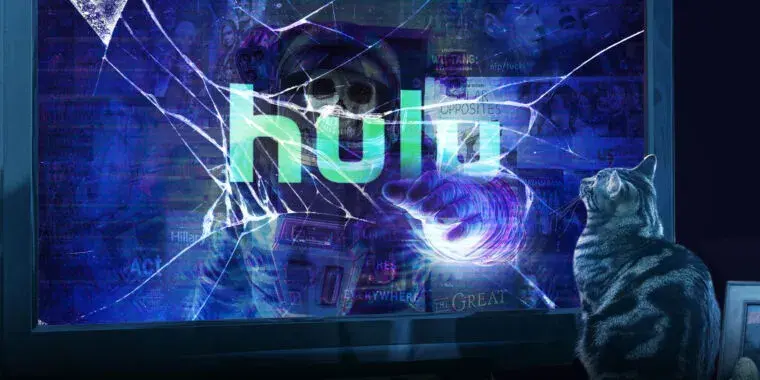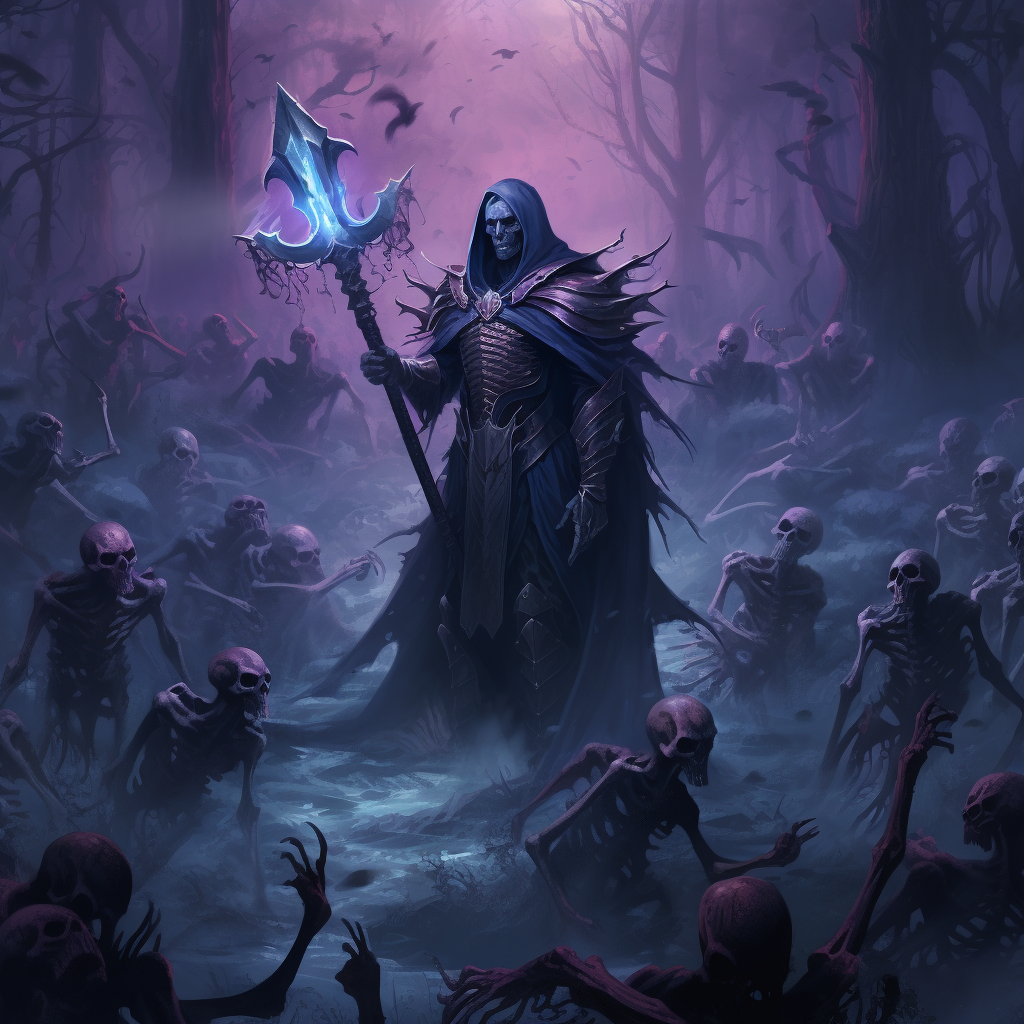For a moment, it seemed like the streaming apps were the things that could save us from the hegemony of cable TV—a system where you had to pay for a ton of stuff you didn’t want to watch so you could see the handful of things you were actually interested in.
Archived version: https://archive.ph/K4EIh
Yeah, cable was and is really awful. The amount of ads makes it literally unwatchable. And the shitty thing is that when cable TV was first introduced, the whole idea was that there wouldn’t be ads like broadcast because you were paying for it. And then they moved the goalposts. Something that Hulu in particular was very guilty of. In the beginning, only the free-tier had ads. And there was one paid tier with no ads. Then that started showing ads, and they created a higher paid tier with no ads.
To me, one of the best things about streaming was timeshifting. You didn’t have to wait for Sunday at 9:00pm to watch a show, and maybe miss it, or have to DVR it, and maybe the recording didn’t work. Or whatever. You didn’t have to schedule your time around TV. You could watch what you wanted, when you wanted. And now that’s gone too, with weekly releases of shows, or half a season now, and the other half a month later, and so on. They’re bringing back scheduled TV and it’s fucking bullshit.
Another promise was that we’d be able to basically have access to every tv show or film, and that evaporated very quickly when all the studios decided they wanted to gatekeep everything so they could charge even more for it, and then now we have them disappearing so many things that have been out there just because they don’t want to pay royalties to anyone involved.
So much culture is being lost because of greedy fucking execs who want to use the things you enjoy as an extortion tool. Going back to cable isn’t the answer. It’s a failed model and needs to die. But we need a massive overhaul of the streaming scene to figure this out. Because right now, it’s so much worse that what came before.
Going back to cable isn’t the answer. It’s a failed model and needs to die.
Defined narrowly enough, yes, that old model is dead.
But more broadly, as an economic matter there will always be a business model for having a basket of content, with some portion of historical content (classic movies and tv shows from decades past) on demand, some ongoing/current on-demand content (last week’s episode of some scripted show), and live broadcast (sporting events happening right now). Build up enough of a catalog, charge a single price to subscribers for access to that content, and people will pay for the entire bundle. And because each subscriber is interested in a different portion of that bundle, the mass of subscribers essentially cross-subsidizes the fat tail of niche content: I don’t mind paying for your niche if it means my niche gets to survive.
The technological and cultural changes have deemphasized the importance of cable’s live delivery mechanism of 100+ “channels” each with programming on a specific schedule, but the core business model still will be there: subscribe to content and you can get some combination of live channels and a catalog of on-demand content.
The content owners, through either carriage fees with the cable/IPTV providers, or through the streaming services, or everything in between, are trying to jack up the price to see what the market will bear for those bundles. They might miscalculate to the point where the subscriber count drops so much that their overall revenue decreases even with a higher revenue per subscriber (and I actually think this is about to happen). And then instead of a market equilibrium where almost everyone pays a little bit to where there’s a huge bundle of content available, the little niche interests just can’t get a subscriber base and aren’t made available, even if the content is already made.
I mean, you just defined YouTube. It has both live content and on demand, historical and real time, it covers a much broader range than any cable station will ever be able to, and it’s single price to not have ads. You don’t get charged for the service and still have to see ads.
I mean, you just defined YouTube.
Well, I was trying to give a broad enough description to cover literally every video service, so mission accomplished!
My point is that every service will have different items in each category, and that splitting up the world’s catalog of content into many different services ends up breaking down the economic benefit of bundling. The YouTube bundle is different from the Netflix bundle, which is different from the Apple TV+ bundle, which is different from Disney+ and Hulu, which is different from Max (formerly HBO Max). YouTube has live content, but if you want to watch a specific basketball game live, you’ll have to subscribe to the service with that (and you’ll have to endure ads and product placement as part of that game). And maybe that’s not the $15/month YouTube Premium, but is instead the $73/month YouTube TV.
deleted by creator
Disney is likely the exception if there is one with a very large historical catalog and several profitable franchisees
Disney is actually struggling with streaming and losing money hand over fist with D+. Last I saw they lost over 1bill in a quarter. They’ve had a few years now, you can’t just keep hemorrhaging money like that, at some point the “rapid growth” has to make way for revenue.
deleted by creator
All great points. That said, no one should feel sympathy for Disney’s profit margins.
They can and should spend less on anti-piracy measures to become more profitable.
And Disney could be 100% profit, overnight, while paying their actors and writers handsomely, if they just license their content to a streaming service that knows what they are doing.
They can and should spend less on anti-piracy measures to become more profitable.
You mean by making a better service?
The reality is that with inflating costs of necessities like food, house, and transport, more people will choose to opt out of streaming services when they jack the prices. Folks will either find alternate forms of content, or find ways of getting the content cheaper (Arrr!!)
We now just wait to see if the increased price is enough to make up for the subscribers they’ll lose.
And if you need convenience, there are pirate streamers. You pay a monthly fee and get every program
And where might we find these? I just want to make sure I don’t accidentally come across one.
Then never browse !piracy@lemmy.dbzer0.com
I just… will never understand paying money to pirate things. Like if I’m paying money, I’ll just pay it to the people creating the content so they create more content I like. If I’m pirating, it’d better damn well be free otherwise, what’s the point?
Because piracy is often a service problem and not always a price one. If a pirate can offer you a better service, people will pay for it.
If you only see piracy as a price issue, then it would make sense why you dont understand why people do it.
Take for example, pretty shitty android boxes preloaded with various kodi streams. Say if you speak a niche language in the U.S for example, and want media in that language, some people would be willing to pay for a (pretty shitty) android tv box that has warez steams of saidncontent because thr legal methods isnt easy to obtain nor have the technological knowlege to properly pirate.
otherwise, what’s the point?
Not having ads. It’s optional so far, but it won’t be forever. Cable proved that.
what’s the point?
Simplicity and overall cost. Pirating is cheaper and allows you to get everything in one place versus 5 different streaming platforms. I see the draw.
And it’s hard to make the case that paying streamers equates to paying the content creators with the strikes highlighting how little the actual creators get out of the deal. I’m in favor of paying for content, but you can’t say paying Netflix their continually increasing, and more restrictive, subscription fees is actually contributing to supporting creators who make good content.
So your argument is that it makes sense to pay pirates because content creators aren’t getting paid enough? If we all switch to paying pirates, there will be no more content to steal. Hell, even if a large percentage of us switch.
Look, I get pirating content when you’re poor and can’t afford it. But if you’re actually paying, WTF dude?
My argument is that it’s not surprising that someone would choose to pay $20/mo for 1 service with all the things they want versus paying $100/mo to deal with 4 services.
The fact that Netflix et al pay their creators squat is a separate component. I was just pointing out that saying you want to pay content creators for their work doesn’t really equate to paying for a Netflix subscription. If someone wants to ensure they’re paying creators for their content, there are much better ways to do so. You can pay the $20/mo to pirate stuff, then donate to the Entertainment Community Fund, or buy something directly from a writer’s website with the $80/mo you’ve saved.
One option, if your use case supports it, is to hop around the streaming services. We generally subscribe to one or zero for a month at a time.
The reason I buy games is because pirating them is more trouble than just paying for them.
Now with video streaming, the value add was that I didn’t even need to have to go search for something, it was just all there for a small fee.
Now for that fee, I still have to search for stuff (klwhich streaming service is it on in the first place), juggle subscriptions, and also, in some cases, have to watch ads. Why would I do that when the old ways of the sea are more convenient again?
The funny part is that they don’t even care. They’ve already made their money. Best you can do is to try to get them to see the downside.
It’s very frustrating to feel like I’m back to where were were before the streaming revolution: paying HUGE amounts of money to get TONS of content I’m mostly not interested in.
The only saving grace is that I can get it all without ads still, so I’ll take that win.
In the article, they talk about the bundling of services as a bad thing, but I feel like if I’m going to pay for everything anyways, I’ll happily take that huge discount, TYVM.
New members welcome at !Piracy@lemmy.dbzer0.com! 🏴☠️🦜
In the end the people who ran the hegemony of cable TV just got their hands on the TV streaming services and turned it into the hegemony of TV streaming service.
Nothing have changed the goals people at the top had - they just needed time to adapt
Do what i did and stop watching TV completely. I have watched about 10 hours worth of TV in the past 12 years.
But I like TV.
Do you like commercials? And how much are you willing to pay for TV?
If the answers are “no” and “zero”, then that’s going to affect how much TV you/we watch, even if you/we like the TV shows.
As mentioned elsewhere in these comments, !piracy@lemmy.dbzer0.com.
a system where you had to pay for a ton of stuff you didn’t want to watch so you could see the handful of things you were actually interested in.
I uh…have ya’ll used streaming services? Cus this has always been how streaming services worked too.
Nah, Netflix used to have nearly everything, and then it got split into like a dozen different services.
Netflix used to have nearly everything
“a system where you had to pay for a ton of stuff”
It’s like ya’ll are directly agreeing with me in words but not really grasping the words you’re saying. Streaming services have always had a lot of shows, some you want to watch, some you dont, but your subscription pays for all of them regardless. Exactly what ya’ll are attempting to criticize cable TV for.
The difference is that in cable TV you are beholden to their schedule. You might subscribe to a channel that has exactly what you want and still be unable to watch it because you are not free at that time.
If stream had everything in one single service, who cares that it also has stuff that you don’t have any interest in? You could spend every moment watching just the thngs that you want to, there was no downside to having things you don’t care about. It’s such an archaic mindset to assume the price is bound to potential availability on an on-demand service.
Netflix used to be priced affordably and have nearly everything. We are seeing now with services being split and prices rising that it doesn’t cost more because it has more shows, just on the contrary. It costs more because they think they can charge more and get us to subscribe to multiple services that offer less.
If stream had everything in one single service, who cares that it also has stuff that you don’t have any interest in?
Im gonna quote this post criticizing cable tv to answer this, “you had to pay for a ton of stuff you didn’t want to watch”
I literally just responded to this. The comment you are responding to is about what’s the difference and why this is not the issue with streaming.
The difference is that in cable TV you are beholden to their schedule. You might subscribe to a channel that has exactly what you want and still be unable to watch it because you are not free at that time.
Netflix used to be priced affordably and have nearly everything. We are seeing now with services being split and prices rising that it doesn’t cost more because it has more shows, just on the contrary. It costs more because they think they can charge more and get us to subscribe to multiple services that offer less.
It’s like you picked the single sentence that doesn’t address that exact point to quote.
It all comes down to greed and enshitification in the end.
deleted by creator
Which is completely unneeded. Just look at all the amazing content on Nebula (or the respective YouTube channels) for incredible content for incredibly low production cost.









